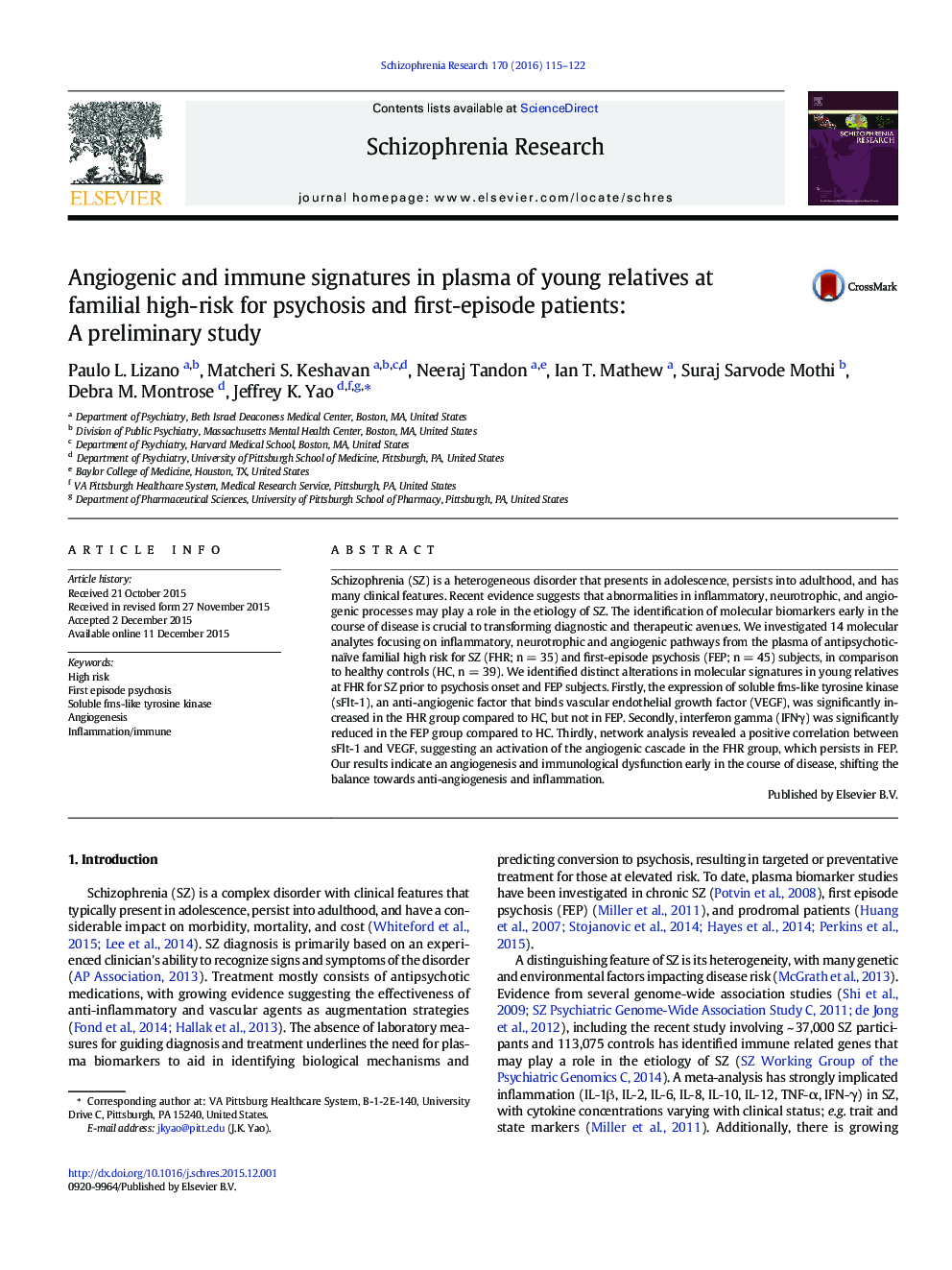| Article ID | Journal | Published Year | Pages | File Type |
|---|---|---|---|---|
| 10307906 | Schizophrenia Research | 2016 | 8 Pages |
Abstract
Schizophrenia (SZ) is a heterogeneous disorder that presents in adolescence, persists into adulthood, and has many clinical features. Recent evidence suggests that abnormalities in inflammatory, neurotrophic, and angiogenic processes may play a role in the etiology of SZ. The identification of molecular biomarkers early in the course of disease is crucial to transforming diagnostic and therapeutic avenues. We investigated 14 molecular analytes focusing on inflammatory, neurotrophic and angiogenic pathways from the plasma of antipsychotic-naïve familial high risk for SZ (FHR; n = 35) and first-episode psychosis (FEP; n = 45) subjects, in comparison to healthy controls (HC, n = 39). We identified distinct alterations in molecular signatures in young relatives at FHR for SZ prior to psychosis onset and FEP subjects. Firstly, the expression of soluble fms-like tyrosine kinase (sFlt-1), an anti-angiogenic factor that binds vascular endothelial growth factor (VEGF), was significantly increased in the FHR group compared to HC, but not in FEP. Secondly, interferon gamma (IFNγ) was significantly reduced in the FEP group compared to HC. Thirdly, network analysis revealed a positive correlation between sFlt-1 and VEGF, suggesting an activation of the angiogenic cascade in the FHR group, which persists in FEP. Our results indicate an angiogenesis and immunological dysfunction early in the course of disease, shifting the balance towards anti-angiogenesis and inflammation.
Related Topics
Life Sciences
Neuroscience
Behavioral Neuroscience
Authors
Paulo L. Lizano, Matcheri S. Keshavan, Neeraj Tandon, Ian T. Mathew, Suraj Sarvode Mothi, Debra M. Montrose, Jeffrey K. Yao,
